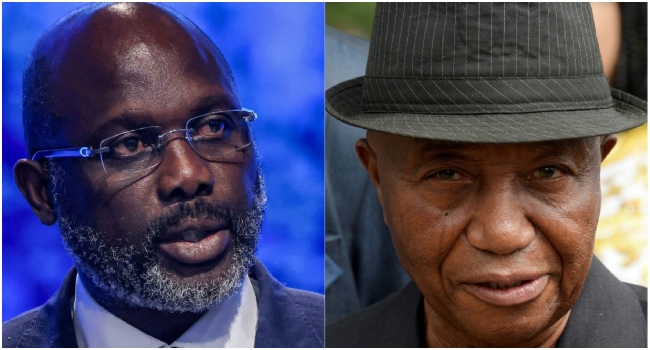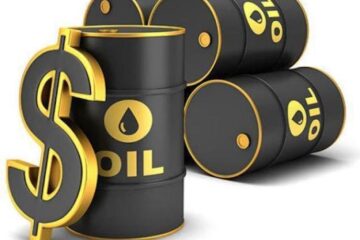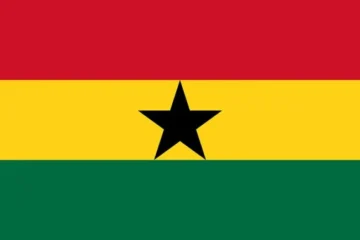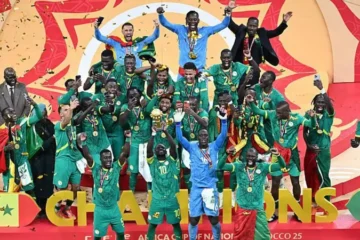Liberians vote in presidential run-off pitting football legend against ex-vp

Weah and Boakai
Liberians began voting on Tuesday to decide whether to hand former football star George Weah a second term as president despite a controversial record or to elect political veteran Joseph Boakai despite his age.
The run-off is expected to be close between the rivals, who also faced off in 2017 when Weah won in the second round with more than 61 per cent.
In the first round of voting on October 10, Weah, 57, and Boakai, 78, came roughly neck and neck on more than 43 per cent, with the incumbent taking a 7,126-vote lead.
Taiyee Success Iledare, a 22-year-old student waiting to cast her ballot in Duazon, a suburb of the capital Monrovia, said she would vote for Weah.
“I think he is the best person to vote for. When you look around you see a lot of development. So when he wins I want him to make sure he deals with the issue of drugs that is destroying our young people,” she told AFP in a suburb .
Irene Palwor, a 41-year-old petty trader said she was backing Boakai, popularly known as JNB.
“I feel that he will make a change… JNB will create job opportunities for the women and the youths.”
This year’s election is the first since the United Nations 2018 ended its peacekeeping mission in Liberia, created after more than 250,000 people died in two civil wars between 1989 and 2003.
More than 2.4 million people are registered to vote, with polls open between 8:00 am (0800 GMT) and 6:00 pm (1800 GMT).
The incumbent is popular among young people but must defend a controversial record in office, while Boakai is an old hand who has held a multitude of positions in the public and private sectors.
The electoral commission has 15 days to publish the results but could do so sooner, one of its officials, Samuel Cole, said.
Since the first-round results, the two political camps have focused on securing the votes of supporters of the 18 candidates who did not make it through.
Edward Appleton, who came third, has backed Boakai, as have two of the other top six candidates.
Turnout could also be an important factor, said Lawrence Yealue, who runs the civil society group Accountability Lab Liberia.
He expects a lower turnout than the record 78.86 per cent on October 10, when the presidential vote was coupled with parliamentary elections.
Weah — who grew up in the Monrovia slums to become the only African to win football’s most prestigious individual award, the Ballon d’Or — is widely seen as approachable and peaceful.
He says he has supported education, built roads and hospitals, and brought electricity into homes.
He was president when the COVID-19 pandemic hit at a time when Liberia was still recovering economically from back-to-back civil wars and the 2014-2016 Ebola epidemic.
His detractors say he is disconnected from the realities of skyrocketing prices and shortages.
More than a fifth of Liberians live on less than $2.15 a day, according to the World Bank.
Boakai blames Weah for corruption, which is endemic in Liberia and has worsened on the incumbent’s watch, according to Transparency International.
The former vice president has forged alliances with local barons, including former warlord and senator Prince Johnson, who supported Weah six years ago.
Clashes during the campaign left several dead and raised fears of post-election violence.
Boakai on Sunday said a convoy carrying Prince Johnson and vice presidential candidate Jeremiah Kpan Koung was attacked with firearms.
Seven people were reportedly injured.
Boakai’s camp also denounced irregularities during the first round.











